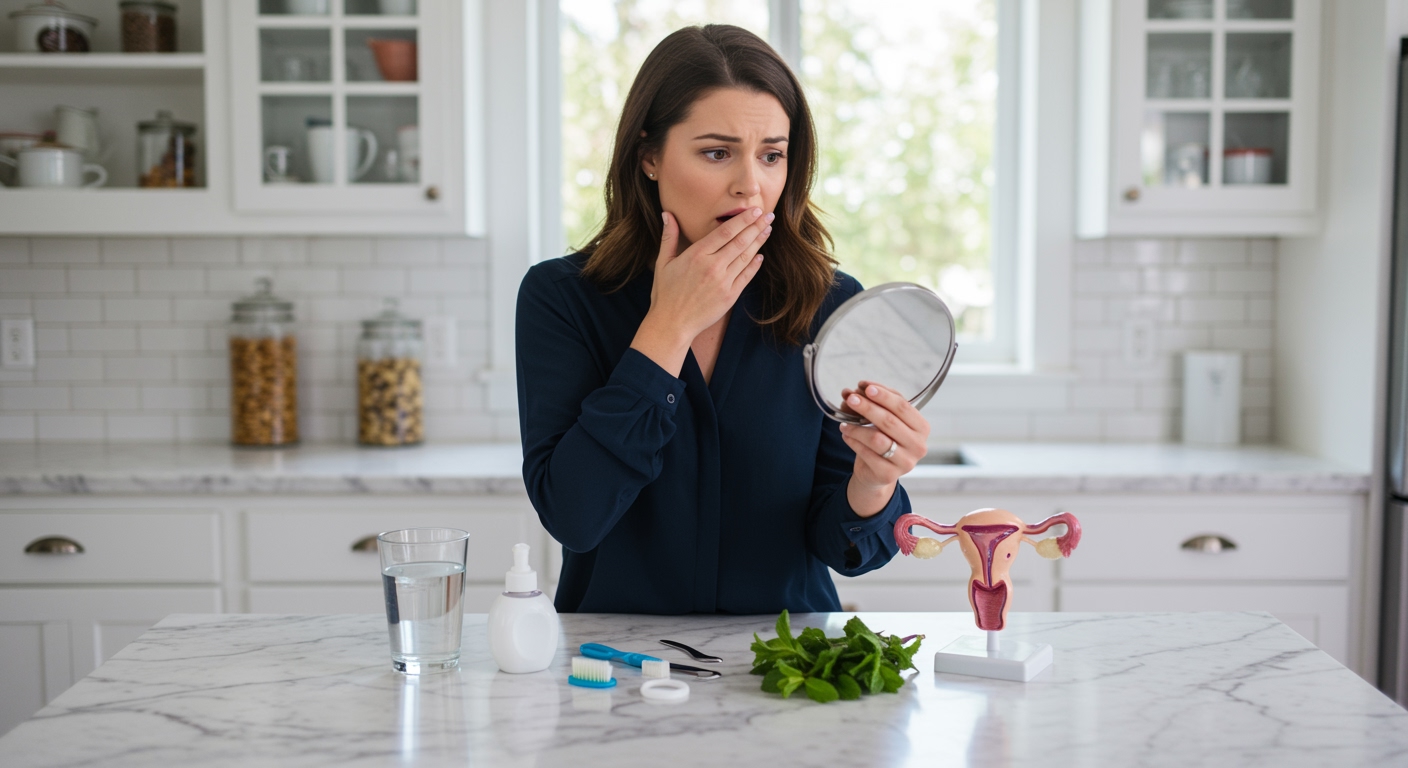✪ Key Takeaway: PCOS patients should prioritize lifestyle changes first, then consider blood sugar supplements only when needed.
Introduction
Your doctor just told you that your PCOS is connected to blood sugar problems.
Now you are wondering if those blood sugar support supplements flooding the market can actually help your condition.
Hi, I am Abdur, your nutrition coach and today I am going to explain whether PCOS patients should take blood sugar support supplements and what really works for managing insulin resistance.
Why Does PCOS Affect Blood Sugar Levels?
PCOS creates a vicious cycle with your blood sugar that most women do not understand.
Your ovaries produce too much androgen hormones which interfere with how your cells respond to insulin.
This insulin resistance means your pancreas has to work overtime to produce more insulin just to keep your blood sugar normal.
The extra insulin then signals your ovaries to make even more androgens, creating a cycle that worsens both your PCOS symptoms and blood sugar control.
About 70 percent of women with PCOS develop insulin resistance, which explains why many struggle with weight gain around the midsection.
Your body stores this excess glucose as fat, particularly in your abdominal area where it becomes harder to lose.
✪ Fact: Women with PCOS are 3 times more likely to develop type 2 diabetes than women without the condition.
What Are Blood Sugar Support Supplements?
Blood sugar support supplements contain various natural compounds that claim to help regulate glucose levels in your body.
Common ingredients include chromium, which helps insulin work more effectively at the cellular level.
Many formulas also contain cinnamon extract, which has been shown to improve insulin sensitivity in some studies.
Alpha-lipoic acid is another popular ingredient that acts as an antioxidant and may help your muscles use glucose more efficiently.
Some supplements include berberine, a compound that can lower blood sugar levels by activating an enzyme called AMPK in your cells.
However, the supplement industry is not well regulated, so the quality and potency of these products can vary significantly between brands.
✪ Note: Always check with your healthcare provider before starting any new supplement, especially if you take medications.
Do These Supplements Actually Work For PCOS?
The research on blood sugar supplements for PCOS shows mixed results that depend heavily on the specific ingredient and dosage used.
Studies on inositol, particularly myo-inositol, show promising results for improving insulin sensitivity in women with PCOS.
Research indicates that 2-4 grams of myo-inositol daily can help reduce insulin resistance and improve ovulation rates.
Chromium supplementation has shown modest benefits, with some studies reporting improved glucose tolerance in PCOS patients.
However, the effects are generally small to moderate and work best when combined with dietary and lifestyle changes.
Most importantly, supplements cannot fix the underlying hormonal imbalances that drive PCOS without addressing root causes through comprehensive lifestyle modifications.
The biggest limitation is that supplements only provide temporary support rather than long-term metabolic healing that your body needs.
✪ Pro Tip: Focus on evidence-based supplements like inositol rather than expensive proprietary blends with unproven ingredients.
What Should You Do Instead Of Taking Supplements?
Your first priority should be implementing dietary changes that directly address insulin resistance at its source.
Focus on eating whole foods with a lower glycemic index to prevent blood sugar spikes throughout the day.
Include protein with every meal to slow down glucose absorption and keep your blood sugar levels more stable.
Regular physical activity, especially resistance training, dramatically improves how your muscles use glucose and respond to insulin.
Even 30 minutes of walking after meals can significantly reduce post-meal blood sugar spikes in women with PCOS.
Managing your stress levels and getting adequate sleep are equally important because both affect cortisol production and insulin sensitivity.
These lifestyle interventions have been proven more effective than supplements alone for long-term PCOS management and blood sugar control.
✪ Fact: A 5-10 percent weight loss through diet and exercise can restore regular ovulation in 50-60 percent of PCOS patients.
When Might Supplements Be Helpful?
Supplements can serve as supportive tools when you have already established healthy eating and exercise habits.
If your blood sugar levels remain elevated despite consistent lifestyle changes, targeted supplements like inositol may provide additional benefit.
Women with severe insulin resistance or prediabetes might benefit from specific nutrients that support glucose metabolism.
Some people have genetic variations that affect how they process certain nutrients, making supplementation more necessary for optimal health.
If you cannot get adequate nutrients from food due to dietary restrictions or absorption issues, supplements can help fill those gaps.
The key is using supplements as part of a comprehensive approach rather than expecting them to be a magic solution for PCOS.
✪ Note: Work with a healthcare provider to determine if your specific situation warrants supplementation beyond basic lifestyle changes.
The Bottom Line
Blood sugar support supplements can provide modest benefits for PCOS patients, but they should never replace fundamental lifestyle changes that address the root causes of insulin resistance.
Health is built through daily choices, not quick fixes from bottles, and this principle applies especially to managing complex hormonal conditions like PCOS.
I would love to hear about your experience with PCOS management and whether you have found certain approaches more helpful than others, so please share your thoughts and questions in the comments below.
References
At NutritionCrown, we use quality and credible sources to ensure our content is accurate and trustworthy. Below are the sources referenced in writing this article:
- American Family Physician: Polycystic Ovary Syndrome: Diagnosis and Treatment
- Mayo Clinic: PCOS Diagnosis and Treatment
- Cleveland Clinic: Insulin Resistance
- CDC: PCOS and Diabetes Risk
- PMC: Insulin Resistance and PCOS





